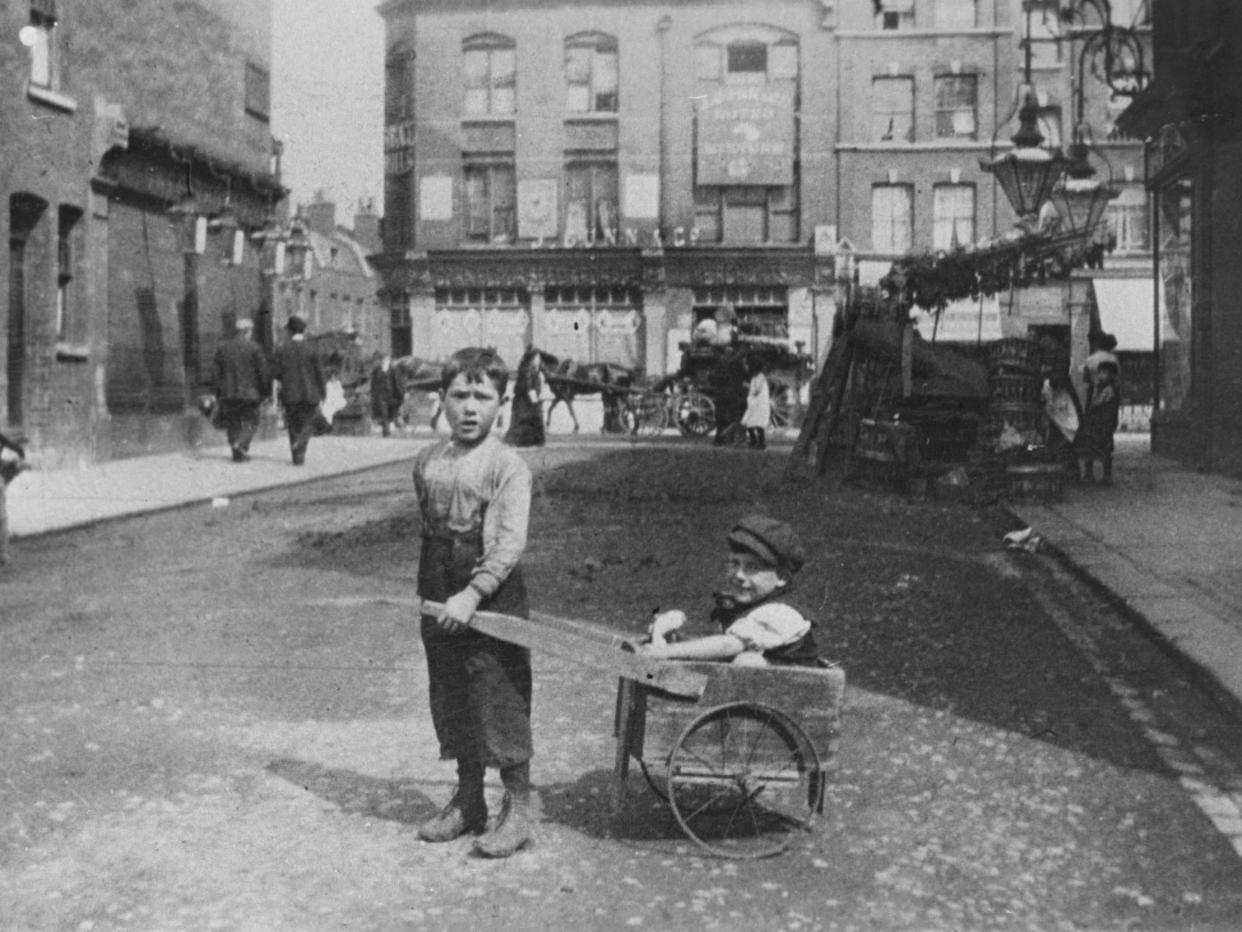The real story of the birth of immigration controls in the UK is eerily familiar

In our near-Brexit condition, it seems almost impossible to think of Britain as a nation-state without confronting the question of who has the authority to control its borders and how this can best be done.
Yet the modern practice of policing immigration is little more than a century old and can be dated very precisely: 1 January 1906. On that day, a new law was brought into operation which laid down the conditions of entry for any foreigner wishing to live and work in the UK and put the power to decide into the hands of an immigration officer, a state functionary that had never existed before.
According to the 1905 Aliens Act, those seeking admission could only apply at one of 14 named ports and an “alien immigrant” was legally defined as a person who travelled on a steerage-class ticket, someone unable to afford a cabin. As soon as they stepped ashore, migrants were required to queue for a complex assessment that determined whether they were entitled stay, sifting out “decent” from “undesirable aliens” according to the results of health checks (including signs of insanity or criminality), proof of financial support, the likelihood of finding a job, and access to accommodation.
Then, as now, the government could arrange for the deportation of “aliens” who committed crimes while in Britain. But, unlike today, it was first necessary for a judge to recommend this course of action during sentencing and the Home Office would only endorse his advice after having carefully considered such factors as the amount of time the guilty person had lived in the country and the hardship that expulsion might cause in each individual case.
Passed into law during the final days of a Conservative administration, but attacked and amended by the Liberal opposition, the 1905 Aliens Act satisfied no-one. Among those who were most disappointed were those on the far right of the Tory party who had championed immigration control and who saw their “anti-alien crusade” in starkly racial terms.
Conservative politicians like Major William Evans-Gordon, the then Stepney MP, had few qualms about joining with the grass-roots extra-parliamentary British Brothers’ League in January 1902 when it held its “Great Public Demonstration” against alien immigration at the People’s Palace on Mile End Road, where the air was thick with cries of “Down with them”, “Wipe them out”, and “Jews!”
These voices are a brutal reminder that the call to restrict “alien immigration” was never a neutral, racially-blind plea for fairness. And that xenophobic groups like the British Brothers’ League can be seen as precursors of a long tradition in British politics in which race and nationalism have served as the mainspring of a populist appeal to the interests of “real people.”
This was one of the Act’s most enduring, if unintended legacies – unintended, because its original supporters had thought to remove the question of race from the domestic political arena altogether by bringing immigration to an end.
In the language of contemporary populism, “real people” constantly see themselves as ignored, overlooked or, worse still, as subject to “betrayal” by the political establishment. And thus it was with the 1905 Aliens Act, which campaigners saw as a travesty of the law for which they had fought so hard.
The chief concession that the Liberal opposition had managed to snatch from the jaws of defeat was the inclusion of a clause that specifically allowed those fleeing persecution “on religious or political grounds” to remain in the UK, even if they lacked the means to support themselves or were likely to become a burden on the state.
In making this exception, the law was implicitly harking back to the 19th-century when, for over 80 years, no-one who came to Britain seeking sanctuary was ever refused entry or sent back, effectively setting new standards in freedom of speech and tolerance towards others. Nevertheless, the 1905 Act marked one crucial difference: if asylum had been granted a political safeguard, that protection was not identified as a right. For, after 1905, asylum was in reality dependent upon the discretion of the officer on the quay.
The bitter struggle to control immigration in the years before 1905 cast a long shadow over the very idea of asylum, a cloud that still hangs over us. To refer to someone as an “immigrant” or an “asylum-seeker” always carries a bad after-taste, the mark of the putatively undeserving pseudo-citizen, the intruder who deserves to be expelled from the body politic. When, in the 1930s, German Jews tried to escape from Nazi Germany, the British government insisted that they were to be classed as “immigrants”, not “refugees”, and could only enter the country on a temporary basis, before being moved on, driven elsewhere. The “hostile environments” we create for others might begin with words, shored up by legal definitions, but they rarely end there.
David Glover is an Emeritus Professor of English at the University of Southampton. His book: Literature, Immigration, and Diaspora in Fin-de-Siècle England explores the roots of the first modern immigration law in Britain
Read more
Hike to immigration health surcharge will ‘penalise’ NHS workers
New immigration rules could cause care work ‘black hole’, warns union
This dispels everything you thought you knew about UK immigration
How our Alien Nation series changes the narrative on UK immigration

